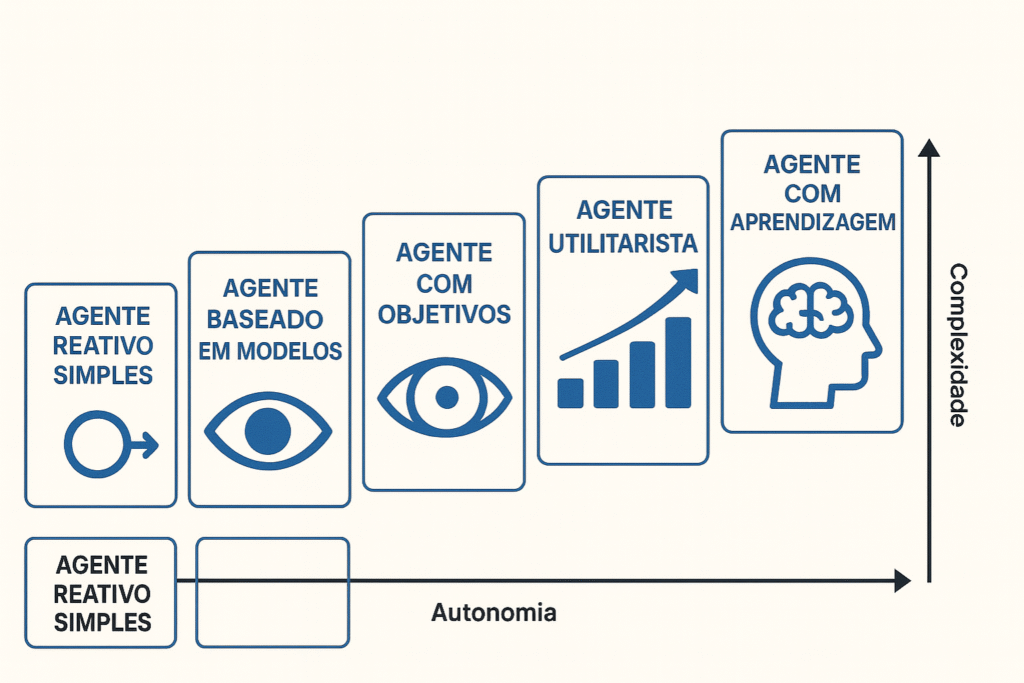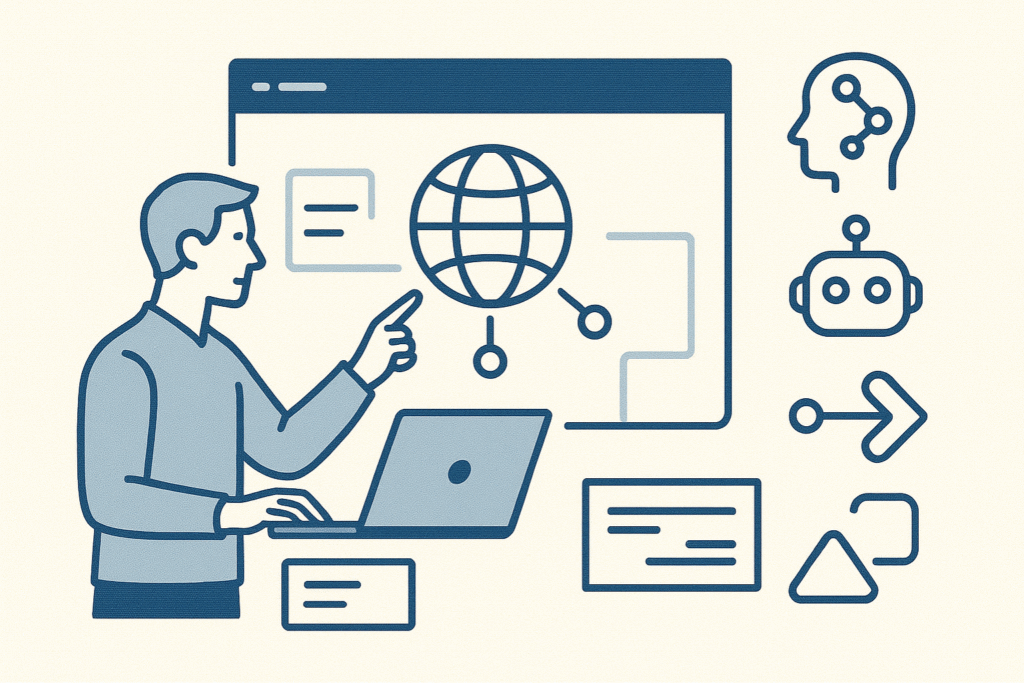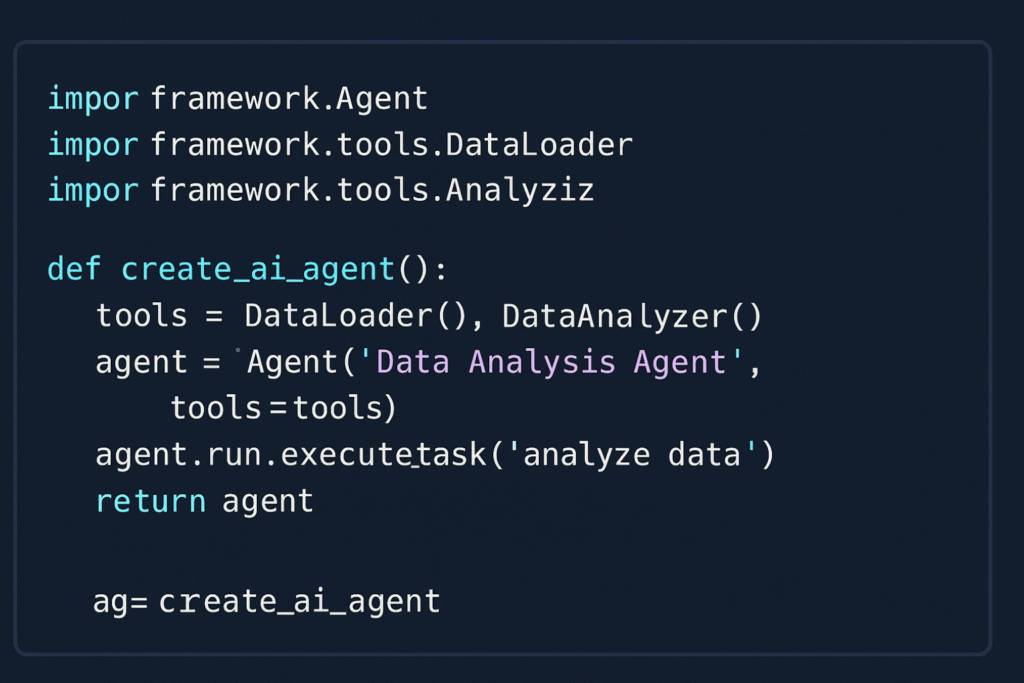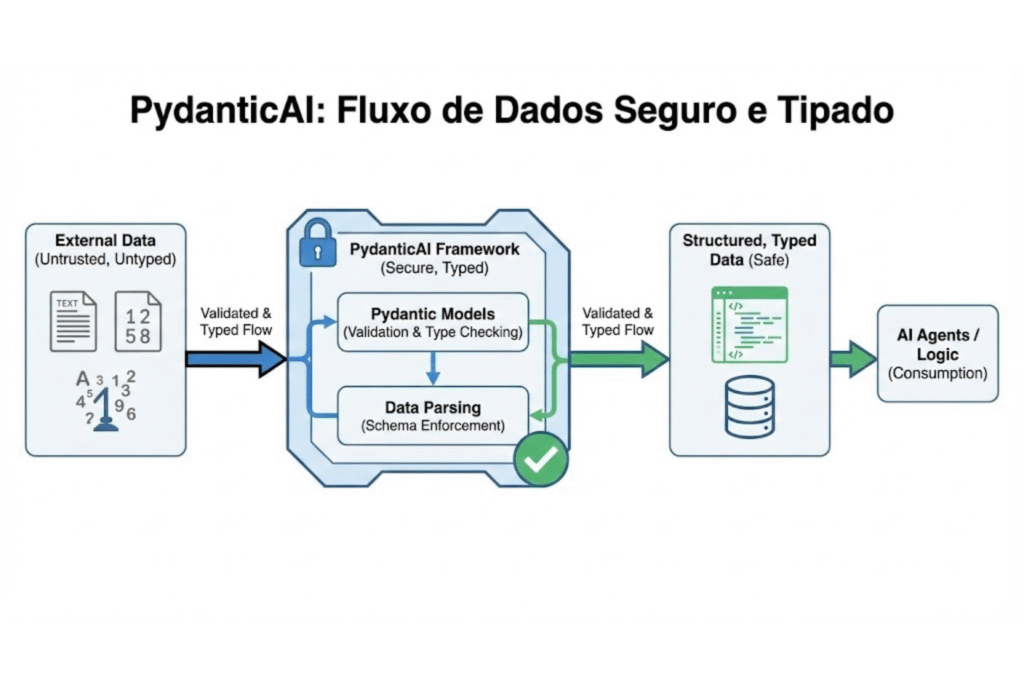Straight talk: 2026 will be a game-changer for those who want to make money with... AI (Artificial Intelligence).
Opportunities exist, but not all are worth your time, and some promise much more than they deliver.
In this article, I've organized the main ways to monetize AI into clear categories, with pros, cons, and the actual level of effort involved.
The idea here is to help you choose a conscious path, without falling into illusory shortcuts.
Contents
AI applied to the workplace as an employee (career and security)
If you already work for a company, applying AI to your daily routine is one of the safest ways to start.
You learn, experiment, and build real projects without sacrificing financial stability.
It's possible to create internal automations, agents, and even softwares that increase efficiency, reduce costs, and generate a direct impact on the business.
When that happens, recognition tends to follow — provided you generate real results, and not just "use AI for the sake of using it".

The key point to understand is that you are not building something that is your own.
Even so, for learning and professional growth, this is one of the best entry points.
AI for managers and business owners
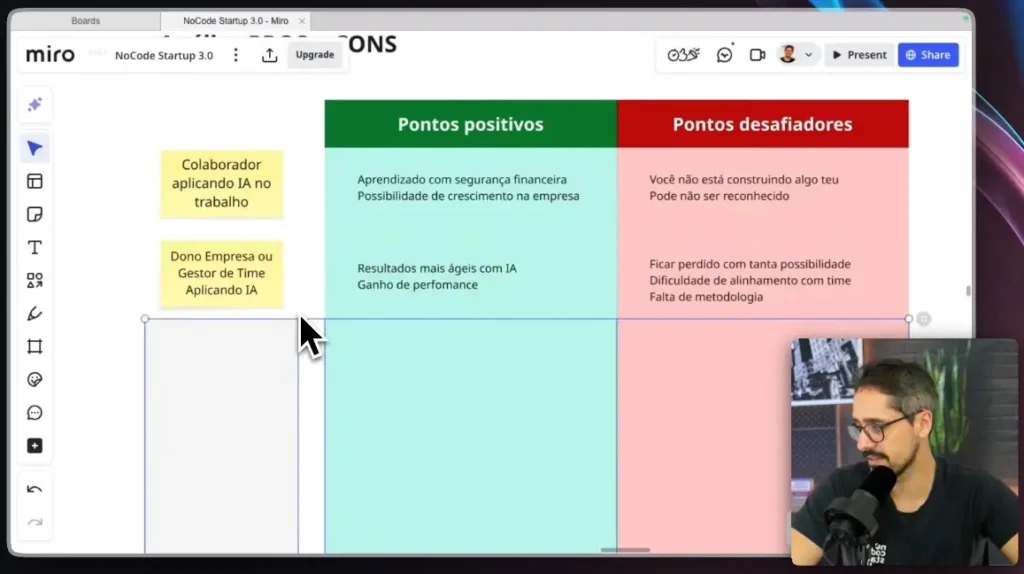
For managers and business owners, AI perhaps represents the biggest financial opportunity of 2026.
Most companies are still lost, lacking method, strategy, and clarity on how to apply AI to their processes.
When applied correctly, AI improves performance, reduces bottlenecks, and accelerates results in sales, customer service, and operations.
The challenge lies in the excess of tools and the lack of a clear methodology for the team.
Whoever manages to organize this chaos and apply AI with a focus on results will capture a lot of value.
There's a lot of money on the table here, really.
AI-powered service delivery: an overview

THE AI-powered service provision It's one of the fastest ways to generate income.
You solve real business problems using automation, agents, and intelligent systems.
This model unfolds into freelancer, freelancer for international clients, agency, and consultancy.
Each one has a different level of effort, return, and complexity, but all require execution.
This is where many people really start to "make the wheels turn.".
Freelancer working abroad (earning in dollars)

Freelancing for international companies is, without exaggeration, one of the best options for making money with AI.
Earning in dollars or euros completely changes the game.
You're still trading time for money, but with a much greater return.
The biggest challenge is the beginning: getting the first project and dealing with the language, even at a basic level.
After the first client arrives, referrals start to come in.
For those who want quick results and are willing to sell their own service, this path is extremely compelling.
Creating an AI agency

AI agencies are the natural evolution of freelancing.
Here, you scale people, projects, and revenue.
The market is still immature; many people do everything wrong, and this creates opportunities for those who do the basics well.
You can close deals, build teams, and deliver complete solutions with AI.
The challenge then becomes management: people, deadlines, processes, and quality.
Even so, by 2026, it's one of the fastest ways to consistently monetize AI.
👉 Join the AI Coding Training Learn how to create complete prompts, automations, and AI-powered applications—going from scratch to real-world projects in just a few days.
AI consulting for businesses
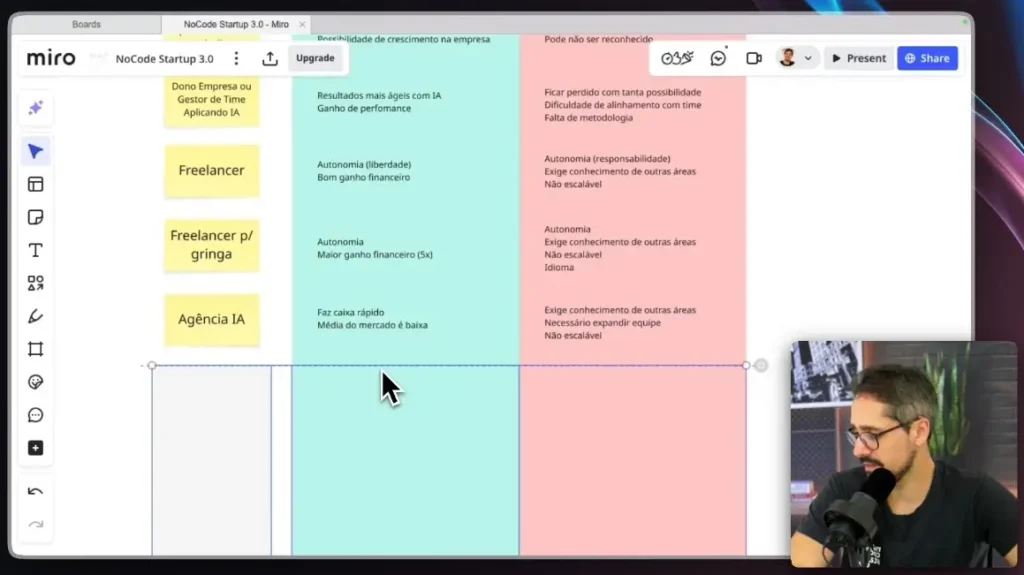
Consulting is an extremely lucrative model, but It's not a starting point..
It requires practical experience, process understanding, and diagnostic skills.
The financial return is usually high relative to the time invested.
On the other hand, you need to have authority, a track record, and a real portfolio of projects.
For those who have experience in agencies, product development, or large-scale implementations, this is an excellent career path.
For beginners, it doesn't make sense yet.
Founder: Creating AI-powered apps

Creating AI-powered apps has never been more accessible.
Tools like Lovable, Cursor and integrations with Supabase They make this possible even without a technical background.
The financial potential is high, but so is the difficulty.
Creating technology is no longer the differentiating factor — today, the challenge lies in marketing, distribution, finance, and validation.
It's a path of great learning, but with a high error rate at the beginning.
It's worth it if you're willing to make mistakes, learn, and iterate.
Micro SaaS with AI (pros and cons)
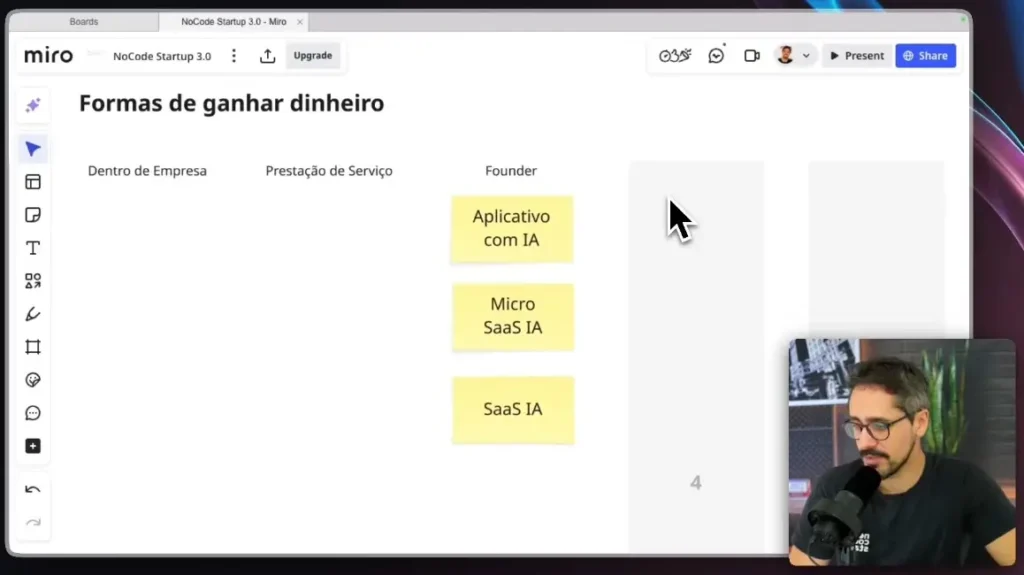
O Micro SaaS It solves a specific problem for a specific niche.
This reduces competition and increases the clarity of the offer.
It doesn't scale like a traditional SaaS, but it can generate a consistent and sustainable income.
The challenge remains the same: marketing, sales, and management.
It's not easy, it's not quick, but it can be a great side business.
Here, I classify it as an "okay" path, as long as you have patience.
Traditional SaaS with AI

O SaaS traditional It has greater potential for scaling, but also greater competition.
You solve broader problems and compete in larger markets.
This requires more time, more emotional capital, and greater execution capacity.
Therefore, the Micro SaaS often ends up being a smarter choice at the beginning.
SaaS is powerful, but it's definitely not the easiest path.
AI-powered education: courses and digital products

AI-powered education is extremely scalable.
Once the product is ready, delivery is almost automatic.
The problem is time.
Building an audience, producing content, and establishing authority takes months—sometimes years.
Here in NoCode Startup, It took us quite a while for the project to become truly financially relevant.
It works, but it requires consistency and a long-term vision.
AI Communities

Communities generate networking, repeat business, and authority.
But they also require constant presence, events, support, and a lot of energy.
It's a powerful, yet laborious model.
I don't recommend it as a first step for those who are just starting out.
With experience and an audience, it can become an incredible asset.
Templates, ebooks, and simple products powered by AI.

Templates and ebooks are easy to create and scale.
That's precisely why competition is fierce and perceived value tends to be low.
Today, if something can be solved with a question in ChatGPT, It's difficult to sell only information.
These products work best as a complement, not as a main business.
To make real money with AI, deliver execution and result That's what makes the difference.
Next step

There's no such thing as easy money with AI.
What exists is More access, more tools, and more possibilities. for those who perform well.
The most solid paths involve providing services, well-positioned products, and building authority.
The easier something seems, the greater the competition tends to be.
If you want to learn AI in a practical, structured way, focused on real-world projects, check out... AI Coding Training.



